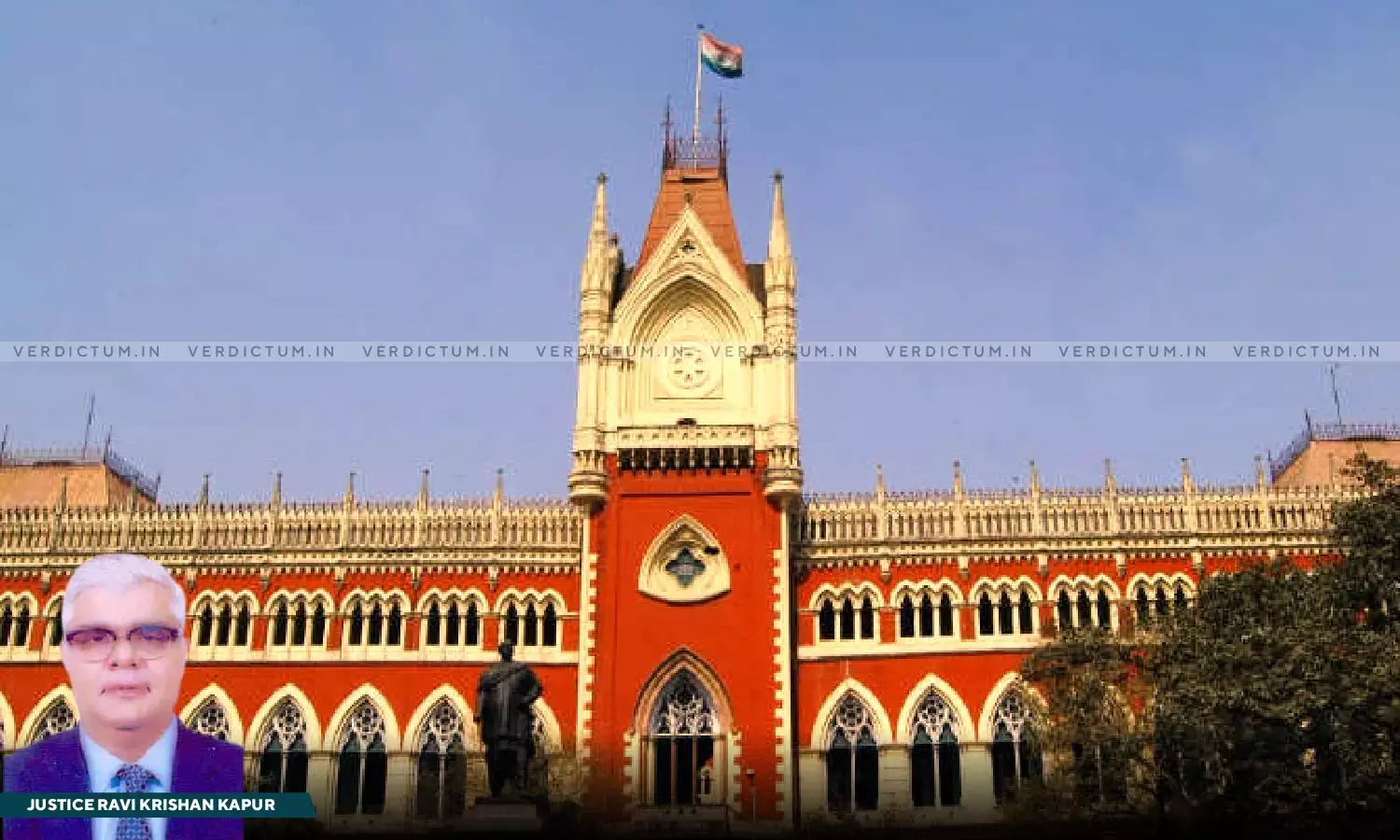Merely Showcasing A Design On An Unverified Foreign Website Does Not Amount To Prior Publication U/S 4(b) Designs Act: Calcutta HC
The Calcutta High Court observed that merely showing a design on a foreign unverified website did not amount to prior publication under Section 4(b) of the Designs Act, 2000.
The Bench set aside an order that had cancelled a registered design for an industrial air cooler. The appeal, filed under section 19(2) of the Designs Act, 2000 (the Act), challenged the decision by the Deputy Controller of Patents and Designs to cancel the design on grounds of prior publication.
A Single Bench of Justice Ravi Krishan Kapur observed, “Merely showing such designs on a foreign unverified website does not amount to prior publication...Registration in a foreign country per se is not a ground for cancellation of a design registered in India. An application under section 19(1)(b) of the Act, for cancellation of registration of a design in India can only be justified on the ground of prior publication. Moreover, such publication should be as contemplated under section 4(b) of the Act. Since the prior art changes as new designs are published, it is crucial to ascertain the relevant date when the prior art is to be assessed.”
Sr. Advocates Jishnu Saha and Harshit Tolia represented the appellant, while Sr. Advocate Ranjan Bachawat appeared for the respondents.
The appellant was an air cooler manufacturing, sales, and design company. It faced a cancellation petition initiated by a Chinese company. The Chinese company argued that its design was registered in China in 2010 and therefore, predated the appellant's design registered in India in 2010. Despite the initial rejection of the Chinese company’s petition in 2019, a similar application by a competitor led to the cancellation of the appellant's design in 2023.
After going through the China National Intellectual Property Administration (CNIPA) website, the High Court clarified that mere registration on a foreign website was not the same as prior publication as defined under Section 4(b) of the Act.
The Court found that the photographs provided as evidence were insufficient, as they did not offer a clear, three-dimensional view necessary to ascertain the design's novelty and originality. “In order, to constitute prior publication, an image or design must be published in such a way that a person possessing ordinary knowledge of the subject is able to apply the design, to the article or see the design to the article or to see the design to the eye of the mind,” the Court added.
The Bench explained that “the publication must be in a tangible form of the design applied to the same article. Even publication in the form of photographs must be explicitly illustrated so that there is sufficient clarity in such a way which could depict the application of the design on the article. If the illustrations or the dimensions, shapes and patterns are not clear from the pictures provided as evidence, the same does not destroy novelty.”
Consequently, the Court remanded the matter for further adjudication and held that “the power to cancel a registered designed is a draconian power and ought not to be exercised in a casual and cavalier manner.”
Accordingly, the High Court allowed the appeal.
Cause Title: Paresh Ajitkumar Kapoor v. Controller Of Patents And Designs & Ors.
Appearance:
Appellant: Sr. Advocates Jishnu Saha and Harshit Tolia; Advocates Shuvasish Sengupta, Balarko Sen, Suvradal Choudhury and Biren Panchal
Respondent: Sr. Advocate Ranjan Bachawat; Advocates D. Ghosh, V. Dutta, S. Dasgupta and D. Chadha




